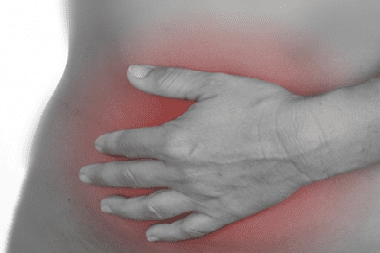Digestive system >>>> Intestinal atony - signs and treatment
Intestinal atony - signs and treatment.

Loss of muscle tone of intestinal smooth muscles is called intestinal atony. Considering that it is the muscle tone supported by the work of nerve fibers that ensures peristalsis and the movement of food masses through the intestines in the process of digestion and utilization of nutrients, and is also responsible for removing indigestible substances from the body, intestinal atony becomes a problem for the entire digestive process and causes disturbances in throughout the small and large intestine, provokes disruptions in metabolic reactions.
The causes of intestinal atony can be hidden:
- in disorders of the innervation of intestinal smooth muscles as a result of surgery or injury;
- in a predominantly immobile (lying) or sedentary lifestyle;
- in the choice of foods with a high calorie content, but low in fiber (or its complete absence), which stimulates intestinal peristalsis;
- in hobbies for starvation, when the digestive process is disturbed and an insufficient amount of food masses does not stimulate peristalsis;
- in chronic stresses that disrupt the work of the central nervous system, which is reflected in the dysregulation of smooth muscle muscles by the nervous system;
- in the excessive use of painkillers and antispasmodics, inhibiting nerve impulses and helping to relax the muscles;
- in the uncontrolled use of antidiarrheal drugs that reduce intestinal motility;
- in diagnosed and undiagnosed intestinal tumors;
- in the development of intestinal dysbiosis, provoking the colonization of the intestinal lumen with a conditionally pathogenic microflora that disrupts the natural course of digestive processes;
- in a genetic predisposition to atony in several generations.
Signs of intestinal atony:
- Decreased stool regularity (less than once a day),
- Chronic constipation,
- The compacted structure of feces,
- Development of fecal stones,
- Bloating, intestinal pain,
- Blanching of the skin,
- Loss of appetite,
- Feeling of incomplete bowel movement,
- Possible nausea, urge to vomit,
- General malaise,
- Anemia develops due to impaired movement and absorption of nutrients (in particular iron).
Treatment of intestinal atony requires, in addition to drug therapy, a change in lifestyle to an active one (playing sports, physical education, walking, jogging, dancing) and changing the diet from an unsystematic to regular (4-6 times a day in small portions) and well balanced (a large amount of fiber, lactic acid products).
Drug therapy includes:
- drugs that enhance the peristalsis of the intestinal walls (metoclopramide, amiridin),
- means that stimulate the digestion of food due to its enzymatic breakdown (Pancreatin),
- mild laxatives (Senade, Regulax),
- gas suppressants (Espumisan).

Read

Read



























